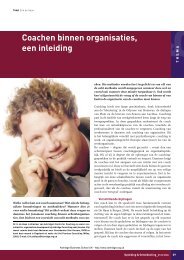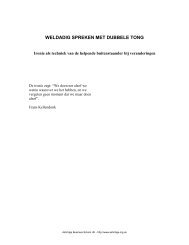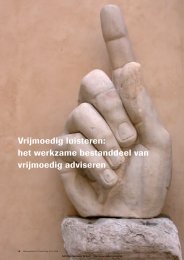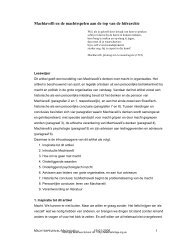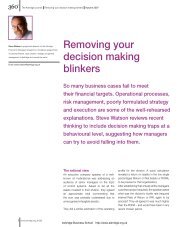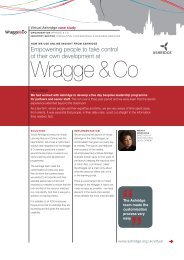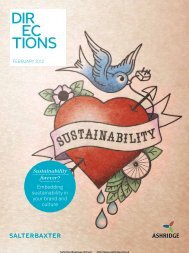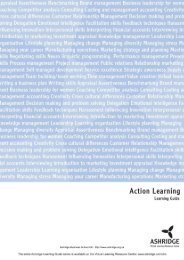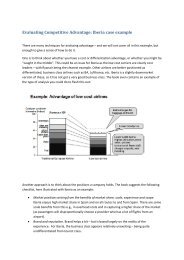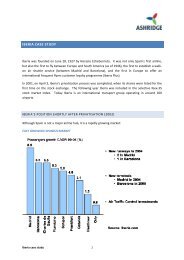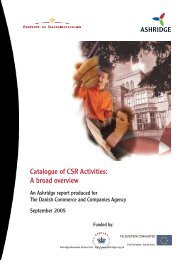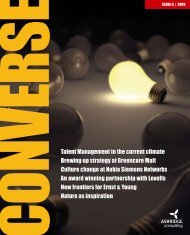“Dialogue – possible between leader and follower?” - Ashridge
“Dialogue – possible between leader and follower?” - Ashridge
“Dialogue – possible between leader and follower?” - Ashridge
You also want an ePaper? Increase the reach of your titles
YUMPU automatically turns print PDFs into web optimized ePapers that Google loves.
• The very rich parallel process that exists; we are a group talking about<br />
dialogue <strong>and</strong> our experiences of it, however we are at the same time<br />
exploring dialogue as experienced in the moment within the group. I think<br />
this is enormously important methodologically as I hinted at when<br />
discussing Cunliffe <strong>and</strong> Eriksen’s (2011) ethnographic approach above. For<br />
example we have discussed what we think ‘<strong>leader</strong>ship’ is but I find that<br />
this tends to generate st<strong>and</strong>ard cognitive answers which reflect classic<br />
teaching in <strong>leader</strong>ship. However, the quality of response, engagement <strong>and</strong><br />
thoughtfulness which has come from defining what <strong>leader</strong>ship means now,<br />
in this group, at this moment, however has been richer.<br />
• The challenges involved in ‘co-researching’ with others <strong>and</strong> how this can<br />
work in practice whilst holding a facilitator role. I have found co-<br />
researching to be a useful ambition <strong>and</strong> intention to hold but it is<br />
unavoidable <strong>and</strong> without doubt that I have more ‘skin in the game’ than<br />
the others. Because ‘I am the one doing the PhD’, I could potentially<br />
influence the direction of conversation more however I notice that<br />
because I am so aware of this I have shied away from taking such a<br />
powerful role to the extent that perhaps I have not been assertive enough<br />
<strong>and</strong> other members of the group have wished me to direct the<br />
conversation more.<br />
• How the method enables very clear examination of personal bias <strong>and</strong><br />
assumptions which shine a light on how such issues must affect more<br />
traditional research methods. For example, the group has helped me to<br />
realise that I tended towards a negative view of power which I had not<br />
previously recognised. I would filter people’s comments on power<br />
accordingly. I have also explored my own power; in fact I could be seen<br />
as belonging to many ‘powerful’ categories such as being white, well<br />
educated, reasonably well-off financially; the only category really which<br />
might be seen as less powerful is that of being a woman <strong>and</strong> perhaps, in<br />
some contexts in business being relatively young (although still nearly<br />
40!). It has been interesting talking through this with the group <strong>and</strong> the<br />
effect it might have.<br />
30



